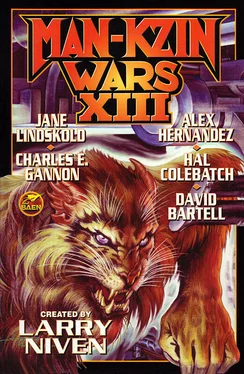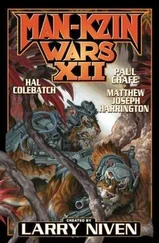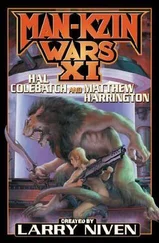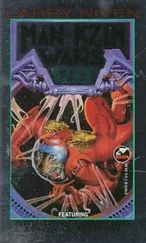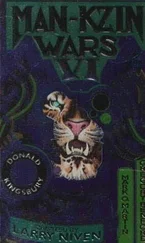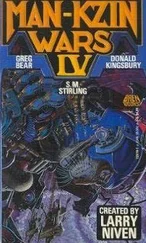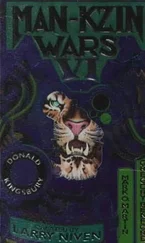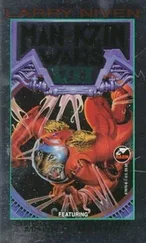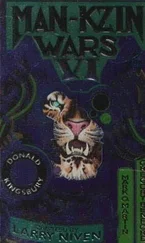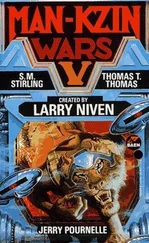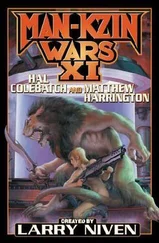Hal Colebatch - Man-Kzin Wars – XIII
Здесь есть возможность читать онлайн «Hal Colebatch - Man-Kzin Wars – XIII» весь текст электронной книги совершенно бесплатно (целиком полную версию без сокращений). В некоторых случаях можно слушать аудио, скачать через торрент в формате fb2 и присутствует краткое содержание. Год выпуска: 2015, Жанр: Фантастика и фэнтези, на английском языке. Описание произведения, (предисловие) а так же отзывы посетителей доступны на портале библиотеки ЛибКат.
- Название:Man-Kzin Wars – XIII
- Автор:
- Жанр:
- Год:2015
- ISBN:нет данных
- Рейтинг книги:4 / 5. Голосов: 1
-
Избранное:Добавить в избранное
- Отзывы:
-
Ваша оценка:
- 80
- 1
- 2
- 3
- 4
- 5
Man-Kzin Wars – XIII: краткое содержание, описание и аннотация
Предлагаем к чтению аннотацию, описание, краткое содержание или предисловие (зависит от того, что написал сам автор книги «Man-Kzin Wars – XIII»). Если вы не нашли необходимую информацию о книге — напишите в комментариях, мы постараемся отыскать её.
Man-Kzin Wars – XIII — читать онлайн бесплатно полную книгу (весь текст) целиком
Ниже представлен текст книги, разбитый по страницам. Система сохранения места последней прочитанной страницы, позволяет с удобством читать онлайн бесплатно книгу «Man-Kzin Wars – XIII», без необходимости каждый раз заново искать на чём Вы остановились. Поставьте закладку, и сможете в любой момент перейти на страницу, на которой закончили чтение.
Интервал:
Закладка:
“Consequently, when my team and I awaken, we will remotely access the data compiled from these samples and from long years of observing kzin behavior and practices. And from that information and from those samples, and with the aid of the research you will cause to commence on Earth, we will eventually design weapons specially tailored to eliminate the kzin invaders.”
“You mean a selective bioweapon, a tailored virus?”
“Our ambitions go well beyond that, Lieutenant. However, suffice it to say that whatever weapon is to be used against them, it will be far more effective if it is produced, and readied, here. You will have live kzin subjects on Earth eventually, but probably never enough to amass as diverse a sample base as we will have accumulated here. And besides, what good is a secret weapon if you cannot be sure it will survive deployment? If it must cross space to get here, traveling in a ship, how could we be sure that it will not also be destroyed with that ship in battle? On the other hand, if the weapon is already here, and ready to deploy in proximity to the most sensitive enemy targets-”
“Yes. I see. But why do you think we will have any live subjects on Earth at all?”
Yang raised one pencil-thin eyebrow. “Do you really doubt the kzinti will attack our home system? Be assured of this: they will. They must. Indeed, I suspect that the first attacks on Sol will have occurred before your own voyage has ended. Their gravitic polarizers should allow them to make that same journey in five, six years, at the most.”
Dieter had a sudden vision of taking a shuttle down for his first visit to Earth, to the homeworld and womb of the human race, watching the disembarkation ramp lower-only to reveal a smoke-plumed panorama of devastation. He swallowed: “That’s a disturbing concept, Dr. Yang.”
“Perhaps. But remember: the kzinti leap before they look. I suspect Earth’s defense fleets shall take advantage of this repeatedly. And with every defeat, the kzinti will leave behind new technology that we will reverse-engineer. Imperfectly, of course, but we will narrow those gaps that exist. And in the course of such clashes, you will also have the opportunity-if you are very careful-to gather experimental subjects. Not many perhaps. But you will be able to examine the kzinti in ways that even I cannot, because you will control their environment absolutely. Conversely, I will have access to an immense social sample, but must observe it surreptitiously, from hiding. However, working together, we will be able to find the strategic pearl of great price: the answer to what makes a male kzin-a kzintosh -tick.”
“I presume you are not referring to anything as simple as biological imperatives.”
“You are on the verge of redeeming yourself, half-genius.” Dr. Yang smiled; Dieter wished she hadn’t. The expression was so unsuited to her face that it looked more like a rictus. “We must learn about their psychology, about their inner lives. Not just what they will show us in the course of our normal interactions with them; we must have knowledge of their emotions and thought patterns.”
Dieter nodded. “Of course. And when they invade our homesystem, we will undoubtedly take some prisoners. And with an unlimited amount of time in which to conduct interrogations-”
“No!” Dieter was startled by the loud, sharp monosyllable that jumped out of Yang’s small mouth. “I am not referring to interrogations. That would be completely counterproductive. What we must acquire is a command of their true, seminal psychology. And to do that, we will need to observe them without the trappings of culture and training. You will be in a position to separate their nature from their nurture.”
“What?”
Yang sighed. “Let me put it this way: what we learn from our society shapes us, prepares us to live in a particular cultural milieu, but it does so by coercing us to privilege some instincts and behaviors over others. That is the nurture component of our maturation process.”
“And nature is what we get from our genetics and epigenetics.”
“Exactly. And that is where the key of the primal kzin is to be found. To put this into terms that bear upon the outcome of this war, it seems urgent to answer this question: how would a kzintosh behave, think, feel if he was not raised among his own kind?”
“Who knows? Perhaps they are more extensively ‘hard-wired’ than we are, less dependent upon cultural shaping.”
“Perhaps,” agreed Yang, “but I suspect we will find that they actually have a very carefully controlled cultural environment.”
“Why?”
“Because what little we have learned thus far suggests that the females of the species are not merely protected and hidden, but sequestered from their own male cubs within mere months of giving birth to them.”
“What’s your point?”
“Let me put it in familiar terms: if you take humans away from their parents when they are toddlers or younger, they will not develop as most other children. This would be particularly true if they are put in an environment filled with daunting physical requirements, harsh discipline, and rich rewards for properly focused violence.”
“So you’re saying that, without their current upbringing, kzinti would be just big, cuddly, housecats?”
“Nothing could be further from what I mean. They are what their evolution has made them: superb killing machines. But as in all successful societies, adult kzinti will shape their young by amplifying their optimal traits with behavioral training and encouragements.”
“Perhaps all this is true, Dr. Yang, but tell me: why do we need to know what they’d be like without the cultural shaping? It’s not like we’re ever going to meet a kzin without it.”
“No, but we might create one ourselves.”
“To use in further experiments?”
“No: to use as a political liaison. Either this will be a war of extermination, or it will eventually end, through victory or exhaustion. And when that moment comes, it would be most helpful to have a kzin who considers us its mentors, its parents, its family.”
Yang leaned forward, tilted the teapot toward Dieter’s cup: nothing came out. “And so,” she finished, putting down the pot and folding her hands in her lap, “that is why I must stay here and not flee to Sol. I must remain to perform the research that can only be performed here. And that is why you must take the details of the research agenda back to Earth: so that we may isolate and identify the key features of the kzin nature.” She looked meaningfully at the handgun that was still resting on the table.
Dieter picked it up and returned it to its holster. “It seems you are needed here after all, Dr. Yang.”
She nodded, her eyes unblinking once again. “We all serve different needs, Lieutenant. Do be so good as to help me prepare another pot of tea.” She rose, hips swaying slightly more than necessary.
Dieter, shrugging, rose and followed her.
2396 CE: Sol System, Rearguard of the Third Kzin Invasion Fleet
Thrarm-Captain panted in open-mouthed hatred: the viewscreen showed yet another spray of glittering sparks that sought out and then converged upon the dim mote that marked the location of the rearguard’s last Slaughter -class battle cruiser. After a moment of darkness, there was a flicker, a flare, and then a white-blue sphere, expanding sharply from a brief, pin-point brilliance, a radiant halo chasing outward before it.
“Thrarm-Captain, Defiant Snarl is confirmed lost. The van continues to pull ahead of us, and-”
“-And that is a good thing, zh-Sensor. The van of the Fleet is supposed to gain more distance. We are the rearguard: we are accomplishing our task.”
Читать дальшеИнтервал:
Закладка:
Похожие книги на «Man-Kzin Wars – XIII»
Представляем Вашему вниманию похожие книги на «Man-Kzin Wars – XIII» списком для выбора. Мы отобрали схожую по названию и смыслу литературу в надежде предоставить читателям больше вариантов отыскать новые, интересные, ещё непрочитанные произведения.
Обсуждение, отзывы о книге «Man-Kzin Wars – XIII» и просто собственные мнения читателей. Оставьте ваши комментарии, напишите, что Вы думаете о произведении, его смысле или главных героях. Укажите что конкретно понравилось, а что нет, и почему Вы так считаете.
